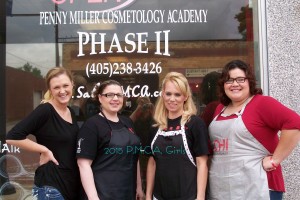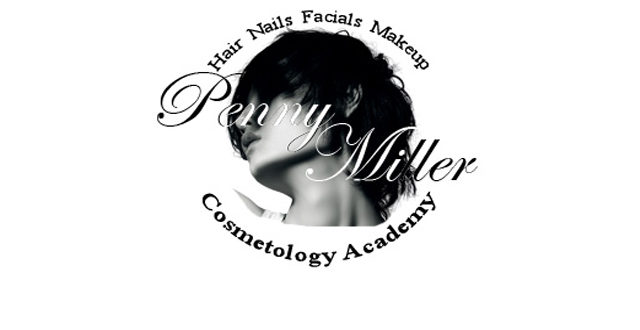Why Did I Choose Beauty School?
Because I Love People.
I Love the expression I see on a person's face when I finish their style, turn them to the mirror and see their eye's glow in a way we haven't seen in years. The look you get when you help someone's day get just a little better. You don't have to move mountains to make someones day better. Sometimes just the little things. The subtle changes. A little caring. What we feel is minor, others see as MAJOR. What a great thing to do......Make someones day better!
THIS IS WHAT WE DO IN THE BEAUTY INDUSTRY!
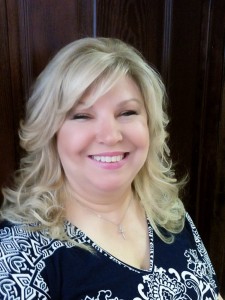
Why Should YOU Choose Beauty School?
You may have a job already so you probably know what it’s like to work and get paid. But what will it be like to have a career and work at it year after year? Will you come home after a hard day and complain to anyone who will listen? That’s not what anyone wants out of life. Think positive. Come up with some words you’d like to connect with your profession. Now look at the words associated with beauty professionals. See whether your words match these.

- Beauty. Sure, that’s obvious, but being around beautiful things like nature and art really can enhance your life and make it easy to get up in the morning!
- Happiness. Not too long ago a poll asked people of different professions to rate their general happiness. Guess what landed among the top? Hairdressers! Walk into any salon, and you’ll see a lot of smiling people.
- Creativity. Having the chance to express themselves creatively is one of the top reasons people give for making beauty their life’s work. You get to work with your hands and come up with new ideas all the time. Every face becomes a fresh canvas for the make-up artist every head of hair a sculpting project for the hair designer.
- People. Unlike some of the other arts-writing, painting-in hair styling and makeup application you don’t spend your creative time alone. In fact, beauty is about as opposite of a solitary career as you’ll find. And, of course, when you work on people’s hair and make-up you hear more of their secrets than you want to know!
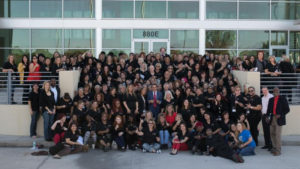
- Reward/Fulfillment. Ask hairstylists what they enjoy most about their day-to-day work, and you’re likely to get one response more than any other: it’s an absolute delight to make people feel great about themselves. Taking a client who’s looking, well, not her best, and seeing her face when she stares at the mirror after you’ve finished working your magic is incredibly gratifying! And unlike a lot of efforts that you work on a long time before you see the “fruits of your labor,” in beauty the gratification comes immediately.
- Passion. That’s a word you’ll hear a lot from people who work in this field. They feel passionate about beauty, and they so appreciate that they can make a living from their passion.
- Flexibility. You manage your own schedule. This is another thing professionals love about this business. People get their hair done on weekends, at night, early before work-whatever hours you want to work, there are clients who need you. It’s common for people to work part-time some years and full-time other years, depending on life’s twists and turns.
- Personal Growth. Fashion trends change continually, and new techniques are routinely developed to create the new looks. To stay on top of everything, beauty professionals go to classes, read magazines, watch DVDs-anything that keeps them up on the latest/newest/hottest. When you’re learning, you feel connected and healthy. One hairdresser said, “When you’re green, you’re growing; when you’re ripe, you rot!”
-
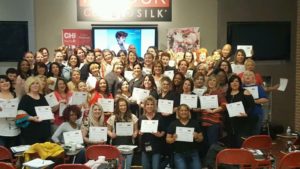
CHI Educator Training - Opportunity. Once you’re a licensed cosmetologist you have an open door to a world of opportunities. You can become a salon manager or owner, teach at a cosmetology school, work for a company to help formulate products, demonstrate products and techniques at trade shows (it’s called “platform work”), develop new looks called “trend releases” for product lines, create styles for magazine or newspaper photo shoots, work on the sets of movies and TV, or even branch off into fields connected to beauty and salons such as public relations/advertising, beauty magazine writing, retail merchandising and display, product sales and distribution and interior design. If you want to stay hands-on “behind the chair,” you can specialize-do mostly hair cuts, hair color, facials, nails or make-up, for example-or you can do it all.
- Job Security. For decades now, there’s been a shortage of skilled, licensed salon professionals, so the industry has had virtually a 0% unemployment rate. It’s likely that you’ll never have to worry about being able to find a job, and even salons that are fully staffed are interested to talk to eager-to-learn young people coming into the field.

- Financial Security. The average income for cosmetologist is about $32,000 per year, according to the American Association of Cosmetology Schools, with some sources estimating that figure at closer to $50,000. Many busy beauty professionals who work full-time earn more than that-into the high five figures and beyond. Not everyone does, and it may not happen right away, but if you do good work, have the people skills to get clients trying higher-end services like hair color and waxing, periodically raise your prices and continually market yourself to spread the word, you will make an excellent living as a beauty professional.
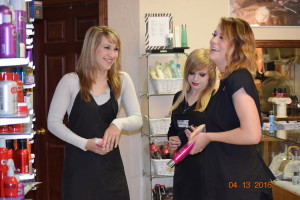
- Giving & Caring. In addition to being “givers” when it comes to treating clients well, cosmetologists are known for their good deeds and community service. Salons routinely hold fundraising cut-a-thons, participate in charity walks as a team and volunteer to do the hair backstage for fashion shows that benefit all sorts of charities-children’s needs, cancer, AIDS, victims of hurricanes and other disasters, hunger and pretty much any cause that’s out there. It’s a charitable industry filled with generous people.
- Fun. A lot of salon owners make sure the environment stays light and upbeat. They hold sales contests with prizes, decorate for holidays throughout the year, hold photo shoots and laugh a lot.
- Teamwork. The day of the competitive, catty hairstylist is over! Today’s salons are all about building a team of professionals who help each other and play to everyone’s strengths. Older stylists help and mentor new people, and the whole staff pitches in if someone needs to take time away for illness or other personal crisis. A well-run salon becomes a second family-in a good way!
